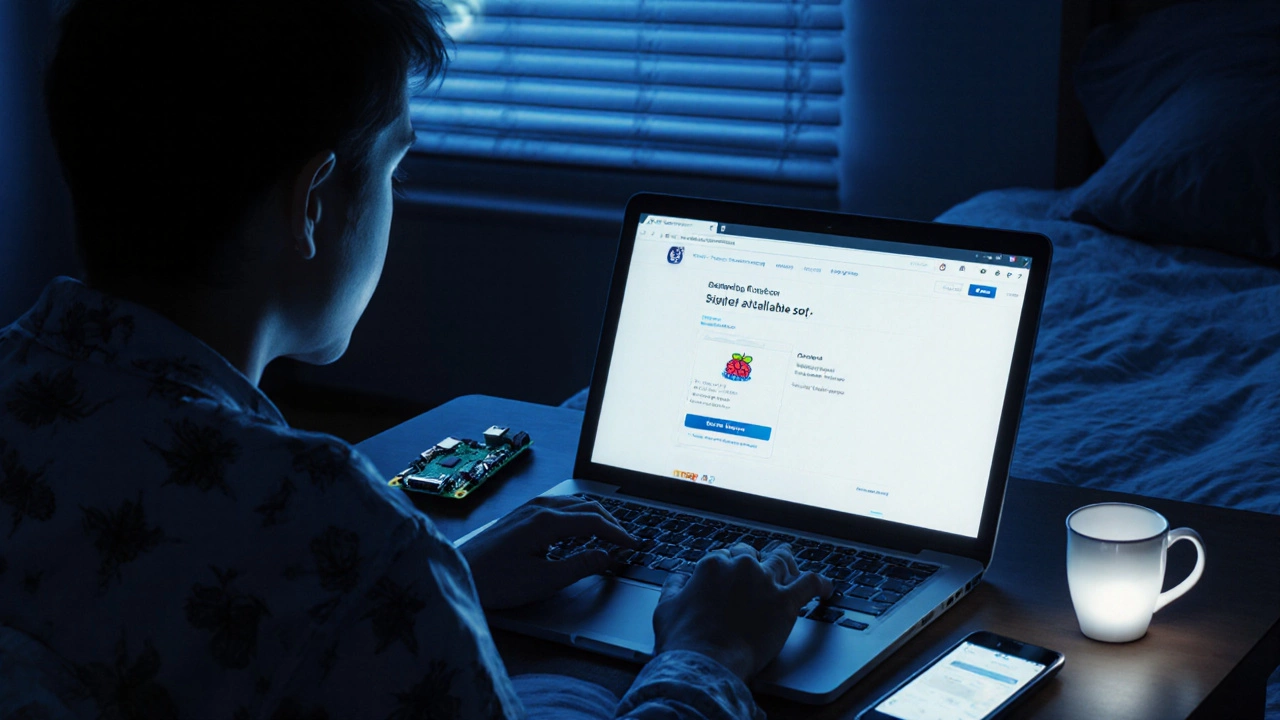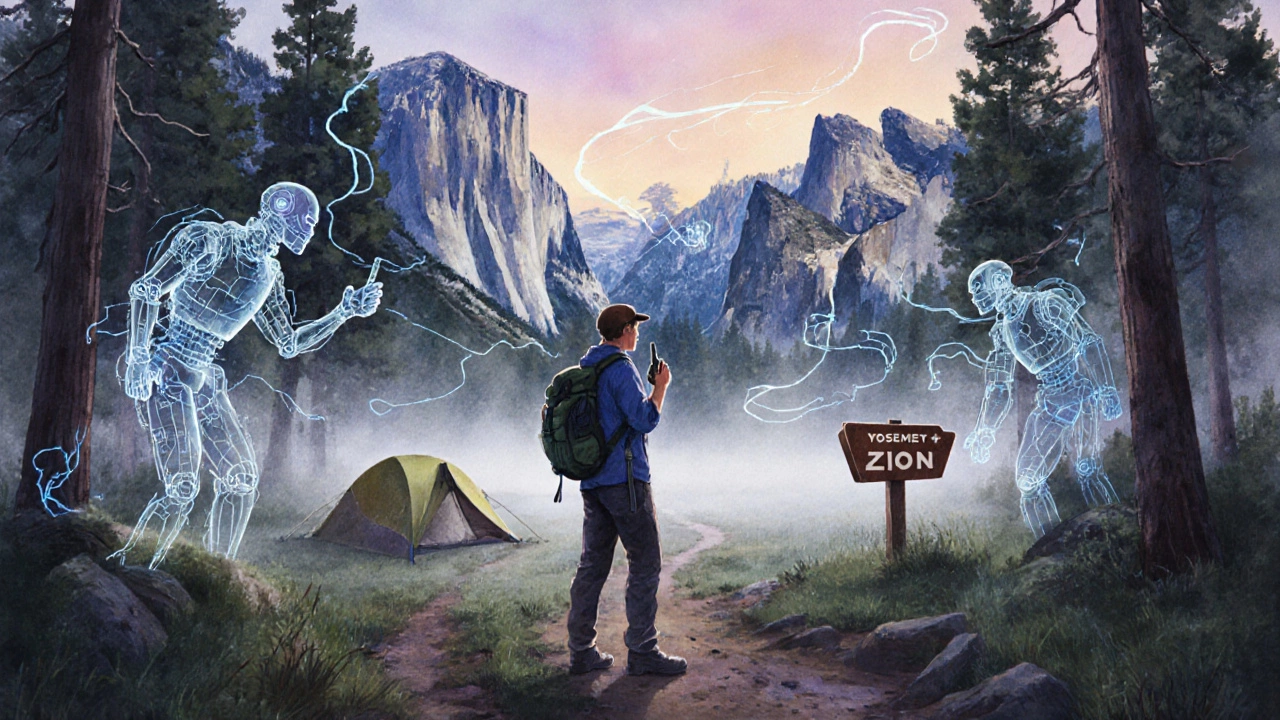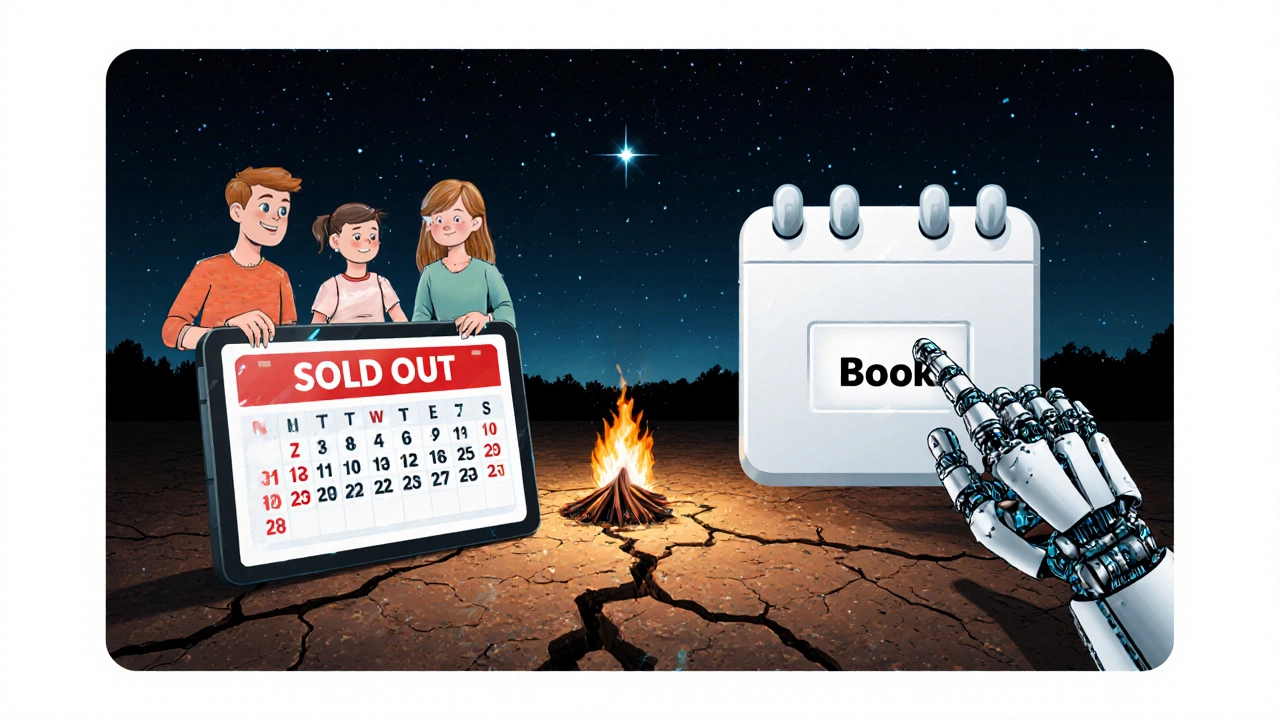Are People Using Bots to Book Campsites? The Real Story Behind Last-Minute Spots
 Oct, 30 2025
Oct, 30 2025
Last-Minute Campsite Booking Time Calculator
How to beat the bots
Check for cancellations during times when bots aren't active. Most bots run during business hours, so early morning and late night hours often have the highest chance of finding spots.
Best Time to Check
It’s Friday night. You’ve got a weekend free, the kids are excited, and you’ve got your tent packed. You open the booking site for your favorite national park. The calendar shows no availability-not a single spot left for Saturday. You refresh. Still nothing. You check three other parks. Same story. Then, you see it: a spot opens up. Right now. You click. Done. But how? Did someone else cancel? Or did a bot grab it before you even had time to type your password?
That’s the question on a lot of campers’ minds these days. Are people using bots to book campsites? The short answer: yes. And it’s changing how you find last-minute spots.
How bots are snatching up campsites
Campsite booking systems-especially for popular national parks, state parks, and private RV resorts-run on servers that can’t handle millions of clicks at once. When a cancellation happens, dozens of people refresh the page at the same time. The first one to click wins. That’s where bots come in.
These aren’t fancy AI robots. They’re simple scripts, often built with free tools like Python and Selenium, that check campsite availability every 5 to 15 seconds. They auto-fill your login, select your dates, and click ‘Book’ the second a spot opens. Some users run them on old phones or Raspberry Pi devices left running 24/7. One camper in Oregon told me he’s used the same bot for two years. He books 3-4 spots a month, mostly in Yosemite and Zion. He doesn’t use them to resell-he just wants to get out on weekends without planning six months ahead.
On sites like Recreation.gov (used by U.S. national parks), bots can detect cancellations within seconds. In 2024, a study by the National Park Service found that 17% of last-minute cancellations were rebooked within 12 seconds. That’s faster than most humans can type their email.
Who’s using these bots-and why
Not everyone using bots is a greedy scalper. Many are regular families or solo travelers who just can’t plan ahead. Maybe they got a last-minute day off. Maybe their kid’s soccer game got canceled. Or maybe they live in a city and only get one shot at a weekend escape each month.
There’s also a group of people who call themselves ‘camping hackers.’ They don’t care about luxury-they want to be outside. They use bots to find cancellations in remote spots: the tiny forest site near Lake Tahoe, the riverside pitch in the Adirondacks, the cliffside spot in Big Sur. These are places that fill up in minutes, even in October.
Some users even share bot access in private Facebook groups or Discord servers. One group in Washington State has over 1,200 members. They trade tips on which parks have the most cancellations (turns out, it’s usually the ones with showers and Wi-Fi) and share bot configurations. One member posted a screenshot of a bot that successfully booked a site at Yellowstone’s Bridge Bay Campground at 2:03 a.m. after a cancellation at 2:01 a.m. That’s not luck. That’s automation.

The impact on regular campers
If you’ve ever spent an hour refreshing a page only to lose a spot to someone who clicked faster, you’ve felt the frustration. It’s not just annoying-it’s unfair. People who plan ahead are getting squeezed out. And it’s getting worse.
In 2023, the U.S. Bureau of Land Management reported a 42% increase in last-minute bookings compared to 2020. That doesn’t mean more people are suddenly spontaneous. It means more bookings are happening through automated systems. In some parks, up to 30% of all weekend spots are now booked within the first hour of cancellation. That leaves barely any room for real people.
Some campgrounds have tried to fight back. Yosemite now limits bookings to one reservation per person per month. Some private parks require ID verification at check-in. Others use CAPTCHAs or slow down the booking process to make bots less effective. But bots evolve faster. New ones now mimic human mouse movements and delay clicks to look like real users.
What you can do to beat the bots
You don’t need a bot to get a last-minute campsite. You just need to be smarter than the bots.
- Check cancellations at odd hours. Most bots run on a fixed schedule-usually between 7 a.m. and 9 p.m. Try checking at 3 a.m. or 5 a.m. That’s when real people cancel after a bad weather forecast or a sick kid.
- Use multiple platforms. Don’t just check Recreation.gov. Look at Hipcamp, ReserveAmerica, and even Airbnb. Some private landowners list spots that don’t sync with the big systems.
- Call the park directly. A lot of cancellations never make it online. Rangers sometimes hold spots for walk-ins or give them to people who call. One camper in Colorado booked a spot at Rocky Mountain National Park by calling at 6 a.m. and asking if anyone had canceled. The ranger said yes-there were two spots, and one was still available.
- Be flexible. Try a different park, a different date, or even a different type of site. A tent site opens up more often than an RV pull-through. A site without a view might be available when the scenic ones are full.
- Join waitlists. Many systems let you join a waitlist. You won’t get a notification every time a spot opens-but you’ll be first in line if someone cancels. Some apps like The Dyrt even send alerts when waitlisted spots become available.

Is it legal?
Using a bot to book a campsite isn’t illegal-yet. But it violates the terms of service on most government and private booking platforms. Recreation.gov’s terms say you must book manually. Violating that could get your account suspended. Some parks have started banning users caught using bots, especially if they’re reselling spots.
There’s no law against it in the U.S., Canada, or Australia-but that could change. In 2025, the U.S. Senate introduced a bill called the Campsite Fair Access Act that would make it illegal to use automated tools to book public lands. It hasn’t passed, but it’s being debated. If it does, penalties could include fines or loss of camping privileges.
Even if it stays legal, it’s becoming socially unacceptable. Many campers see bot users as the ‘goblins’ of the outdoors-stealing the chance for others to connect with nature.
The future of campsite booking
Some parks are trying new systems. One in Oregon now uses a lottery for last-minute spots. You sign up by 8 p.m. the night before, and the system randomly picks winners. No bots can cheat a lottery.
Others are testing ‘fair access’ algorithms that give priority to people who haven’t booked in the last 30 days. That’s a step in the right direction. But until these systems become widespread, the gap between those with bots and those without will keep growing.
For now, your best bet is to stay alert, stay flexible, and stay human. Bots can’t feel the quiet of a forest at dawn or the sound of a campfire crackling. They can’t taste the coffee you make in your thermos. They don’t care about the stars. You do. And that’s why you’ll always find a spot-if you’re willing to wait, call, and try again.
Are campsite bots legal?
Using bots to book campsites isn’t illegal, but it breaks the terms of service on most booking platforms like Recreation.gov and ReserveAmerica. If caught, your account could be banned. Some U.S. lawmakers are pushing to make it illegal, but no federal law exists yet. Private parks can also ban users who use automation.
Can I use a bot to book a campsite in Australia?
Australia doesn’t have a centralized booking system like Recreation.gov. Most campsites are managed by state parks or private operators. While bots are technically possible, they’re far less common here because many sites don’t offer online booking at all. Your best bet is still calling ahead or checking last-minute cancellations on websites like BookMyCamp or KOA.
Why do campsites cancel so often?
Cancellations happen for many reasons: bad weather, illness, last-minute travel changes, or even just a change of heart. In national parks, up to 20% of bookings are canceled within 48 hours of arrival. That’s why there’s always a chance-even if the calendar looks full.
Do bots work on private campgrounds?
Sometimes, but less reliably. Private campgrounds like Hipcamp or KOA often have simpler booking systems that don’t sync with bots as easily. Many also require phone verification or ID checks, which bots can’t handle. Your best shot is still calling them directly.
What’s the best time to check for last-minute campsites?
The best times are early morning (5-7 a.m.) and late night (11 p.m.-2 a.m.), when real people cancel after bad weather or emergencies. Most bots run during business hours, so you’re more likely to find a spot when they’re offline.